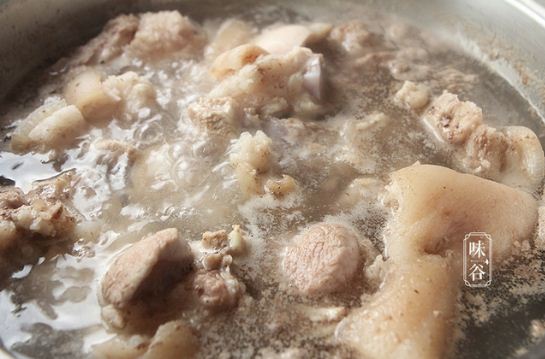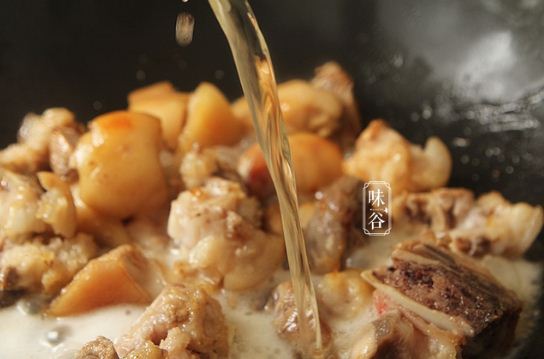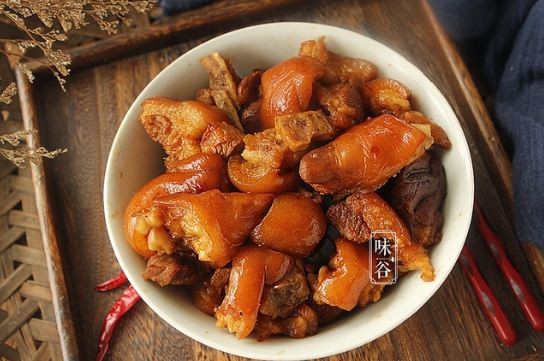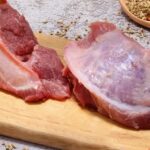Pork trotters, with their myriad preparation methods, have become a favorite dish of the Vietnamese. Traditional Chinese medicine believes that consuming pork trotters can nourish the blood and promote lactation, and can treat conditions such as postpartum blood and qi deficiency, swelling, and abscesses. Eating pork trotters is also believed to strengthen the tendons and benefit the kidneys and qi.
Modern medicine also acknowledges some potential benefits of consuming pig’s feet, including:
– **Healthy Skin**: Collagen is the primary component of human skin, responsible for its fullness and elasticity. Our bodies produce collagen, but this process can diminish due to various factors. According to Webmd, a study of 69 women aged 35 to 55 showed that the absorption of hydrolyzed collagen could improve skin elasticity. Therefore, including pig’s feet, a natural source of collagen, in your diet may be beneficial.
– **Improved Muscle Strength**: Collagen can help increase muscle mass and strength. In a study involving 72 male participants who followed the same exercise regimen, half of them received collagen supplements while the other half received a placebo. While all participants showed muscle improvement, those who consumed collagen displayed more significant results.
– **Joint Pain Relief**: In a six-month study, 200 patients with joint pain were given either hydrolyzed collagen or a placebo. The results indicated that those who took collagen were more likely to experience significant improvements in their joint pain compared to those who took the placebo.
Pig’s feet are a healthy choice, packed with protein. According to nutrition experts, consuming pig’s feet in moderation and preparing them correctly can result in delicious and nutritious meals, especially beneficial for skin health.
When it comes to preparation methods, pig’s feet can be stewed, braised, steamed, or boiled, with stewing being the most popular method. However, many people make mistakes when stewing pig’s feet, resulting in a dish that is not tender, soft, or flavorful. Here are some tips to make restaurant-quality stewed pig’s feet without adding any water:
– Wash the pig’s feet thoroughly, cut them into bite-sized pieces, and then rinse them several times with clean water.
– Soak the pieces in white vinegar for about 20 minutes to remove any excess blood and residual fishy odor.
– 
– Put just enough water in a pot and bring it to a boil. Blanch the pig’s feet for about 3 minutes, then remove them and set them aside to drain.
– Add a small amount of cooking oil to the pot and heat it. Add rock sugar to the melted oil and wait for it to dissolve completely. Then, add the pig’s feet and some ginger slices to the pot to enhance the aroma.
– 
– Pour in a suitable amount of beer, along with star anise, cinnamon, bay leaves, Sichuan peppercorns, dark soy sauce, scallions, and light soy sauce. After boiling on high heat, reduce the heat to low and simmer for over an hour (depending on the amount of pig’s feet) to complete the dish.
– 
By stewing the pig’s feet this way, without adding any water and using beer instead, the dish will be incredibly tender, flavorful, and aromatic.
## Two Groups Who Should Avoid Eating Pig’s Feet:
**People with High Blood Pressure**: High blood pressure is often caused by fatty deposits on the blood vessel walls, reducing the space for blood flow and increasing pressure on the vessel walls. The fat content in pig’s feet is relatively high, and consuming this meat over an extended period can increase blood viscosity. In severe cases, this can lead to cardiovascular diseases.
**People with High Blood Lipids**: Consuming pig’s feet can increase blood lipid levels. Individuals with high blood lipids should follow a low-fat diet and avoid oily and spicy foods. Drinking plenty of water helps dilute the blood and prevents the accumulation of fat in the blood. Eating bland foods is beneficial for lowering blood lipid levels.
The Ultimate Guide to Hair Revival: Experts Reveal the 2 Power Ingredients to Transform Fine, Thin Hair
For women struggling with thinning hair, finding the right supplements that genuinely promote hair growth can be challenging. Many fall into the trap of choosing the wrong supplements, which can leave their hair weaker and more problematic. This introduction will reveal the three ingredients to avoid and the two expert-recommended ones to look out for.






































